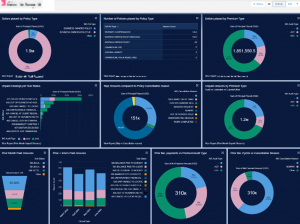Tax season presents a win-win situation for consumers and collectors because consumers can use their refund to pay off debt.
This is also an opportune time to negotiate settlements with debtors.
According to a new survey by the National Retail Federation (NRF), about 35% of consumers are planning to use their refund to pay off debt, which is the lowest percentage since 2016.
“Tax return season is a time when consumers plan and prioritize financially, whether it is paying down debt or saving for a rainy day,” NRF President and CEO Matthew Shay said in a recent news release.
“With the passage of tax reform and the expectation of more disposable income, we expect to see consumers prioritizing how and when they spend their hard-earned dollars, especially during the back-to-school and holiday seasons.”
The issue now becomes who the debtor will pay.
One of the most important challenges for collectors during tax season is establishing contact with consumers before other agencies to ensure that the debtor pays off your client’s debt first.
Here are some tips for maximizing your collection rate during tax season:
1. Develop a strategy
Develop a well-planned collection strategy that incorporates the latest consumer trends and economic factors.
FREE RESOURCE
Sample Collection Letter (PDF)
Download our sample debt collection letter and start collecting on unpaid accounts like a pro.
[contact-form-7 id=”13860″ title=”Sample Collection Letter”]
2. Incentivize
Start preparing for tax season early by keeping in contact with debtors and incentivizing them to pay off the debts using refund money.
3. Negotiate settlements
This is the time of year when accepting more settlements pays off.
Most consumers are committed to reducing their debt during tax season, so this is an opportune time to negotiate more settlements.
4. Utilize analytics
Utilize predictive analytics and business intelligence to make real-time adjustments to large segments or individual accounts.
Analyze factors which may determine if or how much the debtor will pay, such as economic conditions, consumer trends and surveys.
5. Expect more calls
Collection agencies should expect a higher number of inbound calls during refund season.
In fact, communications between collection agents and debtors during tax season tend to be up to 40% higher than they are the rest of the year.
By taking advantage of this increased communication, you can maximize your collection agency’s success rate once those refunds start coming in.
6. Ask the right questions
Consumers may not be thinking about their refund or may not be considering using it to pay off debt, so it’s important to ask the right questions to remind them.
Collectors should be asking questions like, “Are you expecting a tax return this year?” or “Have you thought about using your tax refund to pay this?”
Tax season is the optimal time to maximize collection rates and get people out of debt. Make sure you’re taking advantage of the season and preparing your team.





